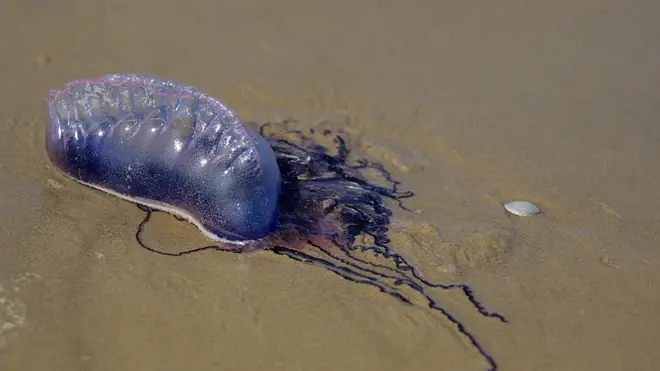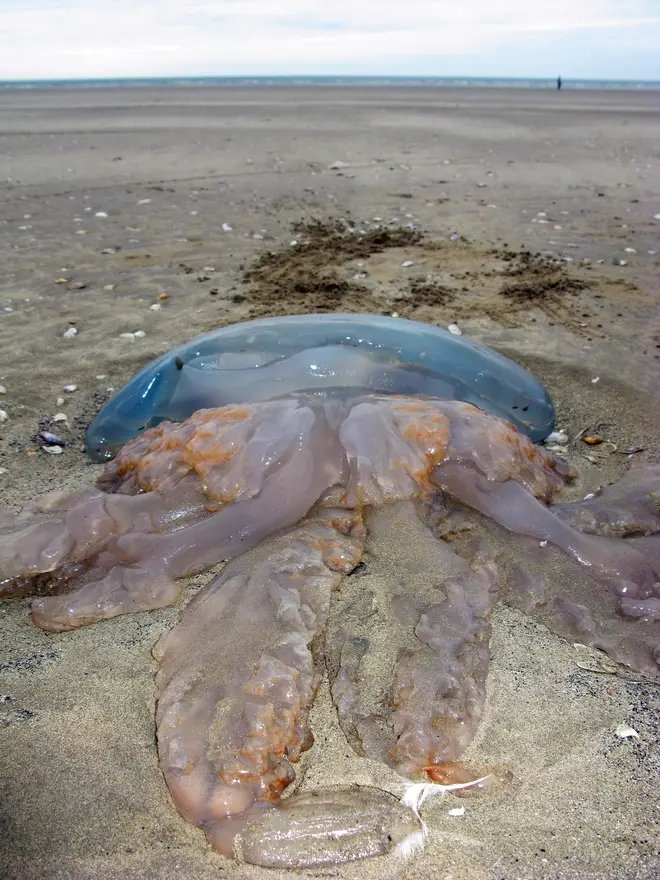
Nick Abbot 10pm - 1am
25 June 2023, 22:01

Experts have described the stunning range of exotic marine species set to be spotted on UK beaches as Britain's coastline resembles the Mediterranean.
They include Portuguese man o' war, a predatory type of hydrozoan likelier to be found on British shores as temperatures warm.
Other species thought to be seen on British beaches in greater likelihood include jellyfish, sharks and turtles.
A killer whale and a sperm whale have both been spotted on UK shores in the past few months.
Read more: Warning as 'Dracula' horseflies that bite through clothes and tear flesh are on their way to Britain

Anglesey Sea Zoo owner Frankie Hobro told The Mirror: "In August into September, we've been getting water temperatures of 18-19C, and occasionally 20C. These are what you would expect to see in the Mediterranean.
“If the warming trend continues, over the next decade we’ll see a change in the diversity of marine life in UK waters. Already we’re seeing puffer fish and triggerfish being caught in lobster pots here, and their number will likely increase.
“Bluefin tuna and shortfin mako sharks are also being seen more often. They’ve always been here but might be venturing closer to land where they’re more likely to be seen.”

Professional and amateur photographers have captured incredible pictures of the exotic sea creatures on popular British beaches, some of which have not been seen before.
Other creatures set to arrive in Britain thanks to warmer temperatures are the so-called Dracula horsefly, which can chew through clothes and tear through flesh.
Symptoms include swelling, dizziness, shortage of breath and anaphylaxis.

The British Pest Control Association placed the dangerous creatures on their 'Top Ten Stings and Bites to Avoid List'.
It warned: "Literally designed to eat a horse, their bite is both impressive and painful.
"The horsefly is a sanguivorous insect and therefore wants to bite you.
"They can persistently chase you at a flying speed of around 15mph, and it'll bite right through clothes.

"It has mandibles that can rip and tear flesh apart."
The NHS also warns about potential symptoms.
Its information page says horsefly bites can be "very painful and leave the bitten area of skin red and raised".

Retail sales rise unexpectedly thanks to falling petrol prices and warm weather